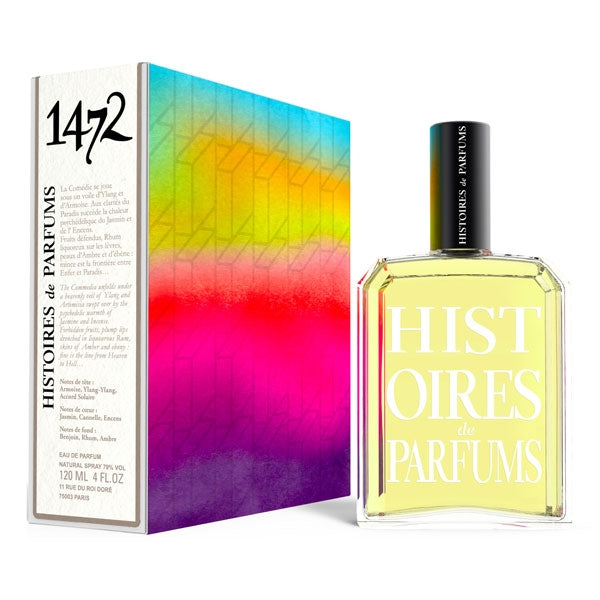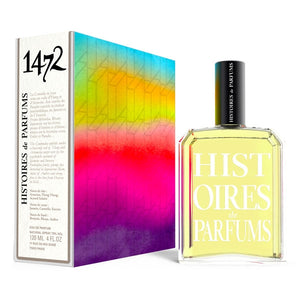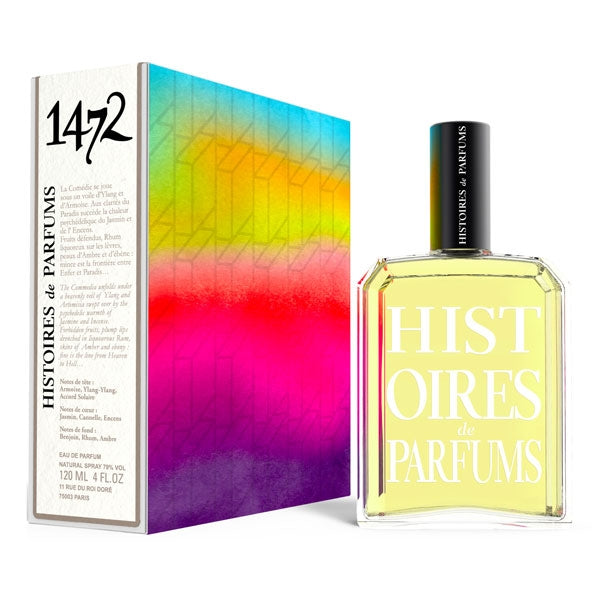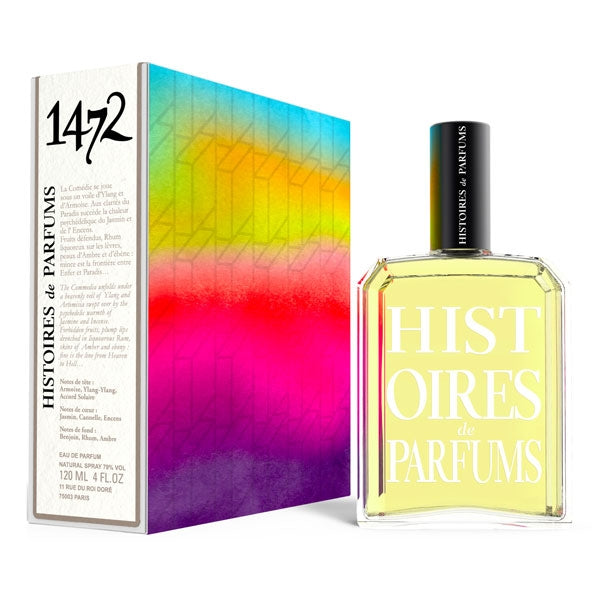1472 – this date, the earliest in the Histoires de Parfums collection, marks the publication of the first edition of one of the most beautiful and influential works of medieval poetry: La Divina Commedia – The Divine Comedy. Written by Dante Alighieri, this work is divided into three books: Paradiso (Paradise), Purgatorio (Purgatory) and Inferno (Hell).
It is a long metaphor about good and evil, sin and virtue, faith and unbelief – but more than anything else, it is an exploration, if not an introspection, of the reality of salvation, of life after death. How else could we speak of salvation, of life after life, of its shadows and heights, other than Dante already has?
In 1472, Histoires de Parfums rewrote the oldest story in human history, the story of good and evil, by transforming sin into a fragrance. The line between heaven and hell, between light and shadow, is indeed fine, and nowhere is it more obvious than in gluttony. It only takes one bite to turn a gourmet into a glutton, just a spark of desire to throw the purest soul into the nets of lust.
1472 plays on this slippery slope, bringing together the radiant breath of mugwort and the indolic warmth of jasmine and ylang-ylang, while a heart of spices and amber balsams shines both sunny and sombre under a veil of incense.
The scent of fleeting seconds and insatiable desires that transform into wild, exhilarating passion; the scent of love teetering on the brink of surrender, of elegance on the verge of vanity, is also the scent of eternity, whether good or evil...




